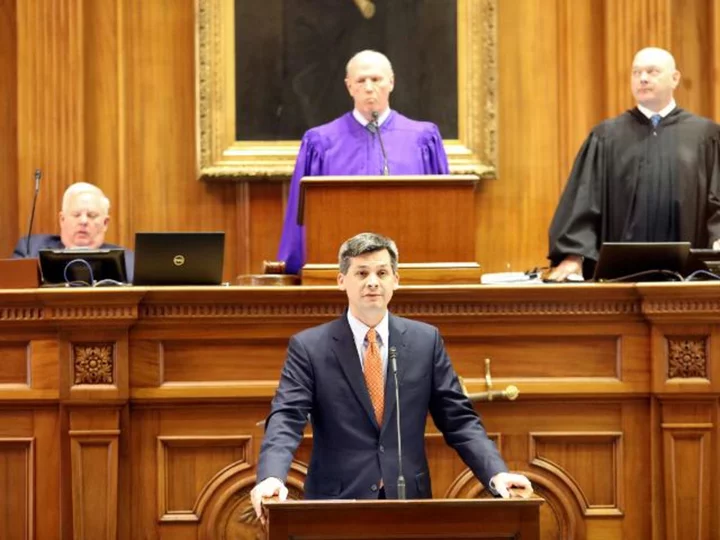A controversial six-week abortion ban bill is headed to South Carolina Gov. Henry McMaster's desk to be signed into law after the measure cleared the state Senate Tuesday.
The state Senate approved a House-amended version of the bill by a vote of 27-19, after that chamber passed it last week.
The legislation, known as the "Fetal Heartbeat and Protection from Abortion Act," would ban most abortions after early cardiac activity can be detected in a fetus or embryo, commonly as early as six weeks into pregnancy, before many women know they are pregnant. Any physician who knowingly violates the law would have their license to practice in the state revoked by the State Board of Medical Examiners.
It remains to be seen whether the measure would survive a court challenge once signed into law. South Carolina passed a similar six week abortion ban in 2021, but the state Supreme Court struck it down earlier this year, concluding that the state constitution's privacy protections require limits on the procedure to allow women sufficient time to end a pregnancy.
With McMaster's signature, South Carolina will join a list of Republican-led states that have championed sweeping abortion restrictions in the wake of last year's Supreme Court ruling overturning Roe v. Wade. But backlash, demonstrated in some instances by electoral evidence, to severe restrictions has created a complicated political landscape in some states, including South Carolina.
During debate on the legislation in the state Senate, a bipartisan group of five women lawmakers had tried to convince some state Senate Republicans, who previously voted against a near total abortion ban, to join them in rejecting the latest legislation.
"There are many things we need to do in our state. Instead, the overwhelmingly White male Republican majority is going to focus again and again on abortion," state Sen. Sandy Senn said on "CNN This Morning" last week.
Recent efforts to pass further restrictions on abortion faltered in April when the state Senate failed to pass the "Human Life Protection Act," which would have banned most abortions in the state, in a 22-21 vote with several Republicans voting against it. The bill had previously passed in the state House and included exceptions for incidents of rape or incest.
This story has been updated with additional information.









